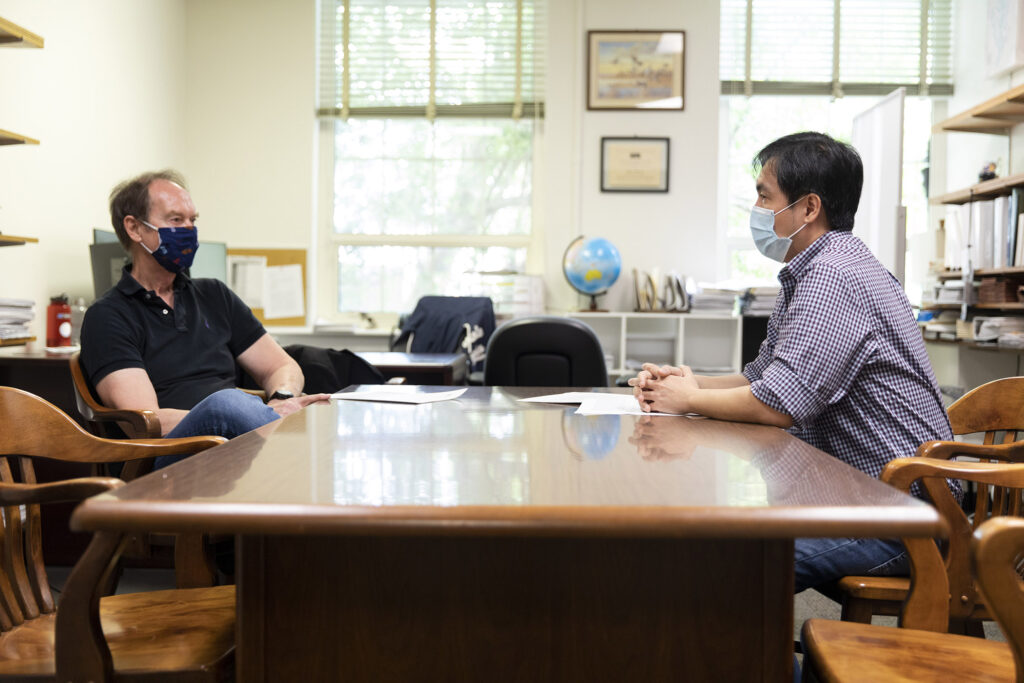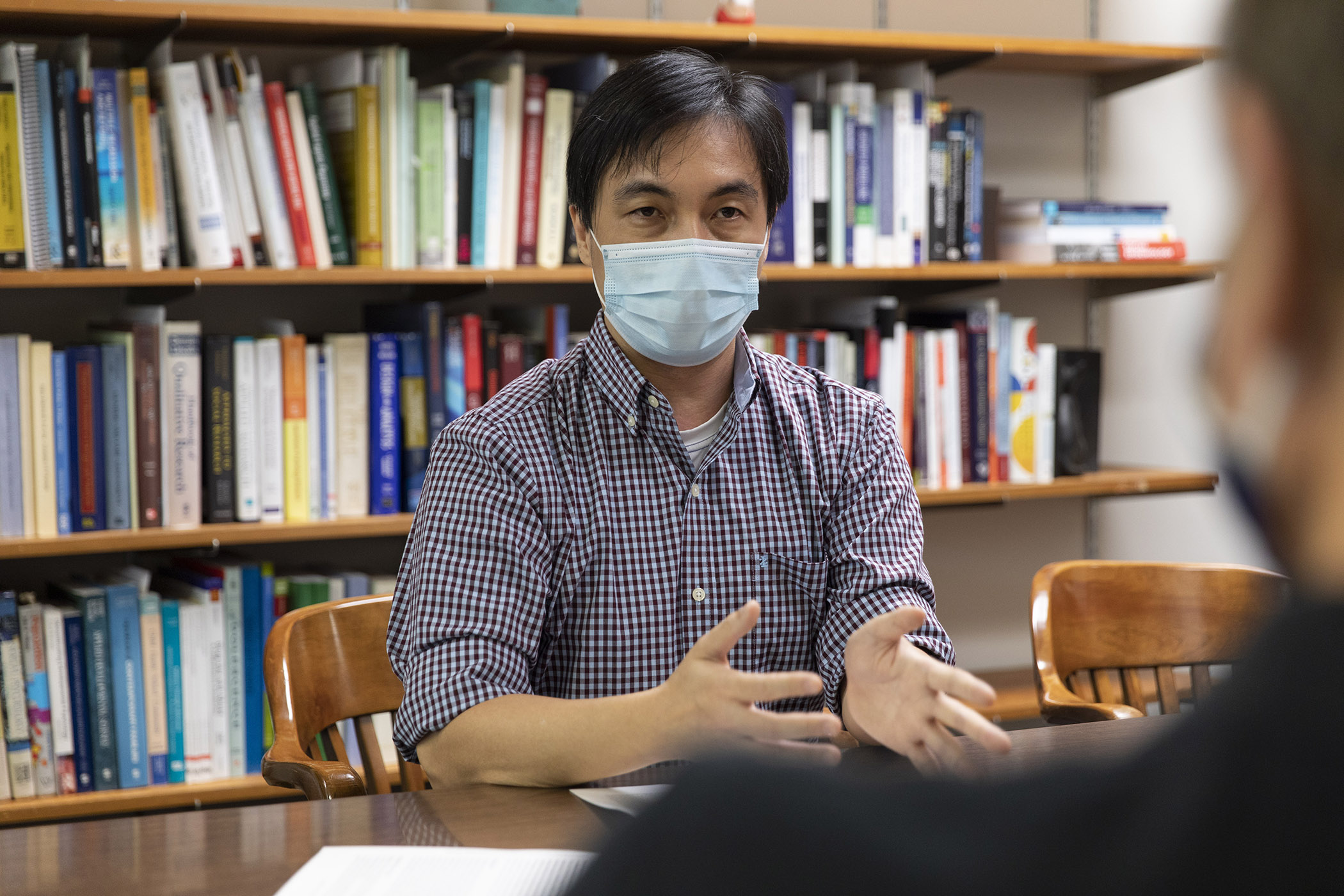Last year, when Man Kit Lei’s working group on families, communities and health received a grant through the University of Georgia’s new Teaming for Interdisciplinary Research (TIR) Pre-Seed Program, he knew the funding would help the group bridge some boundaries.

Lei’s team pulled together researchers from genetics, psychology, communications, family research and sociology to learn about the different ways each discipline approaches health research. Initially, the group members had encountered communication barriers.
“Genetics has its own language. Public health has its own language,” said Lei, assistant professor of sociology.
A simple process
Overcoming initial roadblocks to interdisciplinary research is one of the goals of the pre-seed program, which on Oct. 1 will begin accepting proposals for a second round of funding. Like last year, the idea is to encourage applications by keeping the process simple—a short abstract and image that represents the project are all that’s required—and keeping the funding focus broad.
“This program is intended to catalyze interdisciplinary research by facilitating the intellectual collisions needed for strong teams to form across disciplines,” said Larry Hornak, associate vice president for integrative team initiatives in the Office of Research. “Tackling the challenges of today requires both deep disciplinary expertise and cross-disciplinary collaboration. Simply put, we are looking for cross-cutting teams exploring innovative new approaches made possible by their team member mix.”
Sponsored by the Office of Research in partnership with the Office of the Provost, the TIR Pre-Seed Program provides early-stage funding for these teams. The program launched last fall, and the inaugural cohort already has an impressive list of accomplishments, including multiple grant proposals and publications.

The first round of funding supported 20 teams that spanned the humanities, social sciences and STEM fields. Teams received $500 per member and were given flexibility in how they used the funds. One of the program’s main goals is to support team development that connects UGA researchers not just across campus, but to other universities as well.
That is what Mark Tompkins and his team had in mind when they proposed establishing a National Institute of Allergy and Infectious Diseases Center of Excellence for Influenza Research and Response at UGA.
Tompkins, professor of infectious diseases and team lead, said the pre-seed funds enabled an existing network of researchers from UGA and other universities to come together, solidify their team and craft the proposal. Bringing researchers together from around the country is not always easy, and the funds enabled the team to assemble in Atlanta in January, before the pandemic.
“It was helpful to brainstorm in real time,” he said. “We left with action items and timelines.”
Expert help
Because interdisciplinary teamwork can be complex enough even outside of a pandemic, Hornak recruited some expert help. Assistant professor Dorothy Carter, who heads the Leadership, Innovation, Networks, and Collaboration Lab in the department of psychology, has worked with the pre-seed teams and shared best practices in managing team science. She and graduate student Hayley Trainer administered surveys that were turned into personalized team reports. These reports helped the teams gauge how well-aligned members were in their goals.
“Collaboration is very hard,” Carter said, “but it also has the most potential for societal impacts. We see this as an opportunity to understand scientific teams from the ground up.”
The window for TIR Pre-Seed application submission will open Oct. 1 and close Nov. 16. For more information, visit the program website.


